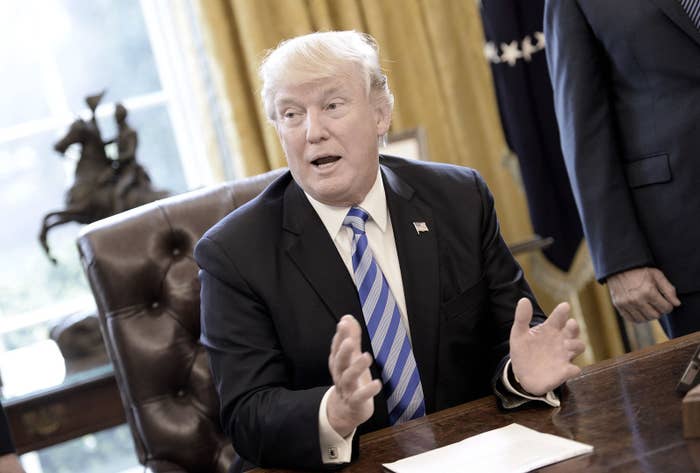
WASHINGTON — More than a week after President Trump's second travel and refugee ban was stopped by a pair of federal courts, the Justice Department on Friday afternoon filed arguments in support of the executive order in both cases.
"The Order is a valid exercise of the President’s broad statutory authority to 'suspend' 'the entry of any aliens or of any class of aliens' and to prescribe 'reasonable rules, regulations, and orders,' as well as 'limitations and exceptions,' regarding entry," Justice Department lawyers argued to a federal appeals court.
The Justice Department currently faces two court orders halting enforcement of the executive order.
In a case brought by the state of Hawaii, a federal judge halted enforcement of sections 2 and 6 of the order — the provisions setting up a 90-day travel ban from six majority-Muslim countries and a 120-day shutdown of the refugee program, respectively. The other order, in a case brought by individuals and refugee organizations in Maryland, stops the Trump administration from being able to enforce the 90-day travel ban specifically.
In the Hawaii case, which is still before the district court, the Justice Department on Friday opposed the state's request that the court convert its temporary restraining order into a preliminary injunction.
Although the Justice Department argues that Hawaii and the individual plaintiff in the case have not met their burden for a preliminary injunction against any of the executive order, the Justice Department's response in the Hawaii spends a significant portion of the filing taking aim at the broad scope of the TRO — halting enforcement of the entirety of sections 2 and 6 of the executive order.
"At the very least, this Court should not enjoin the remaining, internal-facing provisions of Sections 2 and 6 of Executive Order No. 13,780," the lawyers argue, pointing to eight provisions within the two sections. "These provisions involve only internal governmental activities (such as conducting reviews and updating policies) or inter-governmental diplomatic activities. They cannot have any immediate impact on Plaintiffs."
In the other case, the Justice Department appealed the injunction of the travel ban provision to the US Court of Appeals for the Fourth Circuit. On Friday, the lawyers asked the appeals court to stay the district court's injunction pending its appeal. In addition, the department filed its merits brief, the substantive argument defending the 90-day travel ban provision.
In the merits filing, the Justice Department argues the plaintiffs lack procedural requirements to proceed with their lawsuit — arguing that they do not have standing and that their claims are not yet ripe for relief because they are "speculative, non-imminent injuries." On the substance, the brief argues — as the department has done elsewhere — that the executive order is within the president's statutory and constitutional authority.
The filings came later in a day in which Trump received his first court victory in a challenge to the new executive. A federal court in Virginia denied a request for an injunction in a lawsuit backed by the Council on American–Islamic Relations.
This is a developing story. Please check back at BuzzFeed News for the latest.
